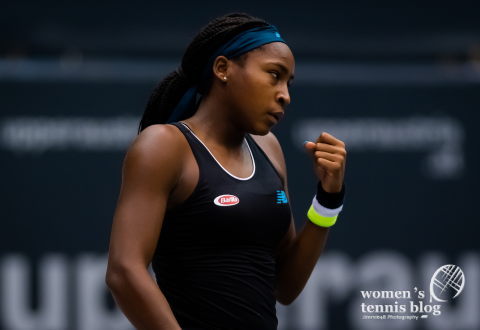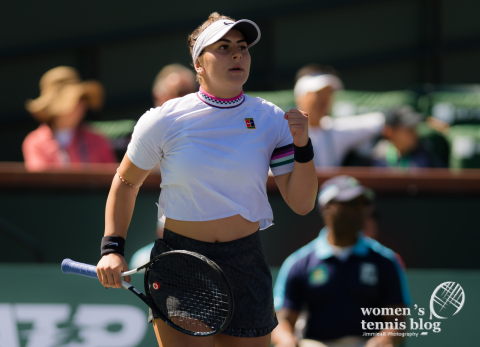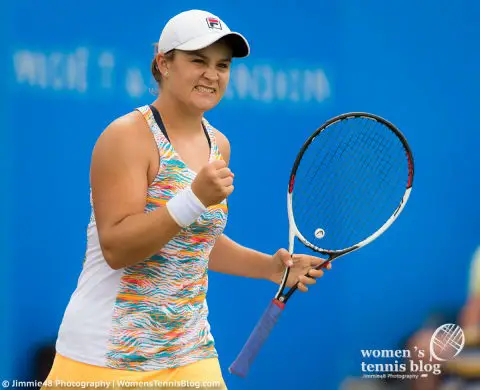In this month’s tennis tips, coach Marcin Bieniek, founder of instructional Enjoy Tennis Blog, will talk about the pressure of facing a higher-ranked opponent and how to overcome it.
We face different opponents during every tournament — some of them are right-handed, while others are lefties; there are those who prefer to play from the baseline, while others do what they can to get to the net; some players have lower ranking, while there are also rivals who have accumulated more points than us.

Tennis is a game of adaptation. Playing on clay is different than competing on hard courts, dealing with hot temperature can be less or more demanding than coping with rain, playing against an offensive player can be easy for one player, while others will achieve better results against more defensive styles. To become a champion you have to learn how to discover challenges in tennis, prepare for them and use specific skills to leave the court as a winner. One circumstance that has impact on the final result is the ranking position.
The ranking is taken into account when qualifying for tournaments and seeding the best players. It is fair to put players in the draw according to their ranking spot, because, theoretically, it provides the opportunity for a final battle between two highest seeded players. Most athletes want to compete against lower-ranked players, but it doesn’t mean that it is impossible to beat a rival who has more points than we have. To do so, we have to be aware of some traps that occur before and during the match, as those can have significant influence on our performance.
1. Higher ranking doesn’t guarantee better performance on a given day
Many players believe that the ranking defines someone’s skills. It is often true, but not all the time and not in all cases. The ranking is based on points accumulated in the last 12 months, so the fact that our rival won a few tournaments five months ago doesn’t guarantee that their current performance is equally high. When two players step on the court, both of them have a 50% chance to win. The current day performance and decisions are what matters. Being aware of a proper definition of ranking will definitely reduce the pressure and change your perception of the opponent.

2. There’s pressure on both sides
Players with lower ranking can feel inferior to the opponent. They can feel increased pressure, which has negative impact on their body movements and mind functioning. To change this situation, players have to realize that the rival with better ranking feels uncomfortable as well. The favorite feels obliged to win and faces the pressure of this predetermined advantage. If we succeed in getting a lead in the beginning of the match against a favorite, we can be sure that our opponent will start to have pessimistic thoughts and their self-confidence will drop significantly. Pressure never affects only one player — it is an integral part of the game and the winner is usually the person that deals with it better.
3. Stick to your own strengths
The biggest mistake a player can make while playing against a higher-ranked opponent is to try to outplay their favorite style. Many times players get wins because they are good at something, so it is not a smart move to try to show that we can be better at style that we don’t practice every day. If we are good at defensive responses, we shouldn’t change anything, even when our opponent plays all the balls inside the court with solid power.

4. Never give up while you’re losing
There is no time limit to tennis matches, so until two sets are won you can never say for sure who will win the match. Unfortunately, while playing against higher-ranked rivals, players tend to give up when trailing by a large margin. They don’t believe that the opponent who is playing really well at the moment can suddenly drop their performance. It is crucial to remember that every player is a human being, so their thoughts and actions can change dramatically in a minute. By fighting, we give ourselves time to see if the rival is really so good to maintain solid performance for the long enough stretch of time.
Surprise.
That’s what the tennis community says when a lower-ranked player beats the favorite. If you want to make one of these surprises, be sure to study tips from this article and practice them every time you face someone with more points than you. Either you will allow little factors to have negative influence on your game or you will show that the course doesn’t lie and the better person always wins. Doesn’t matter the number before the name.




